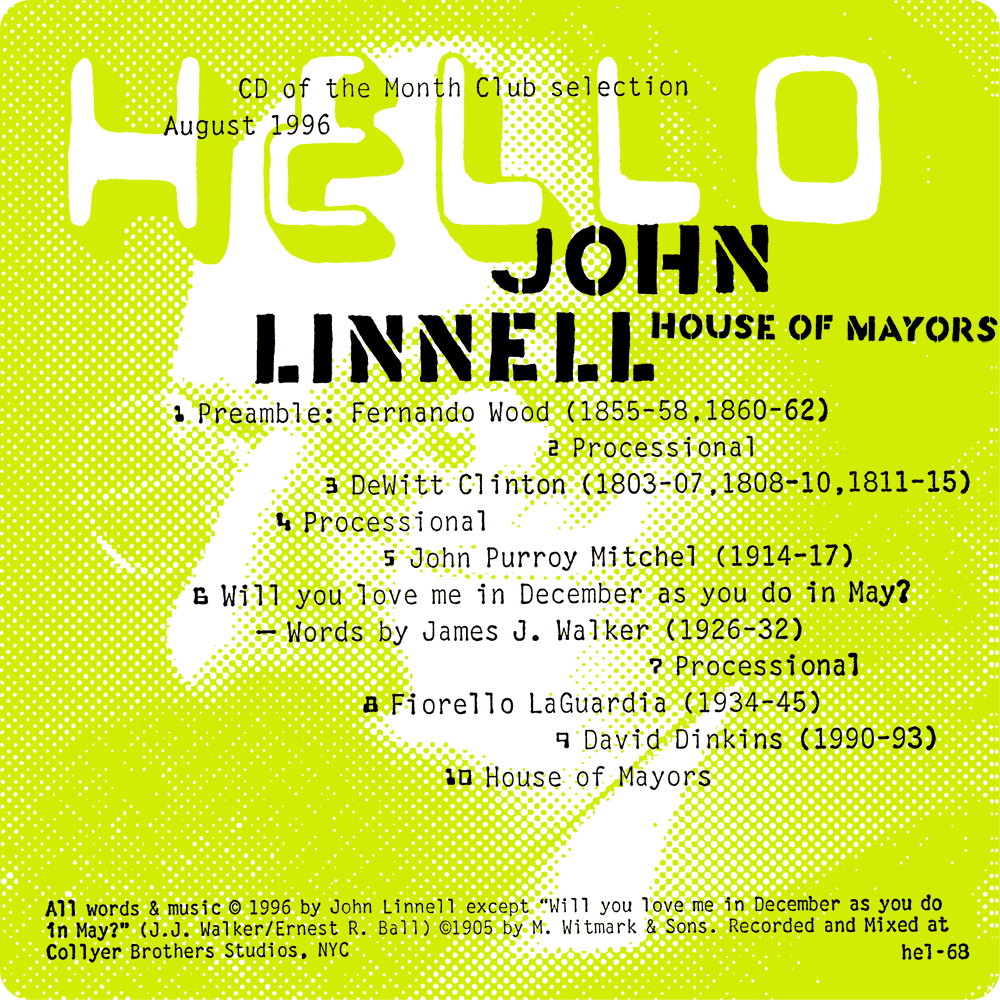
| release year | 1996 |
|---|---|
| type | single |
| listened to on | 2025-05-28 |
| favorite | DeWitt Clinton |
| links | tmbw |
The Disney stage show Great Moments with Mr. Lincoln was intensely divisive upon its launch at the 1964 World's Fair, as it featured a reanimation of a dead man. Abraham Lincoln, rising from his grave as an animatronic, left to perform for all eternity — given new words, new life, new character. The creaking automata lurch into action.
While the philosophical questions that led to panic around Great Moments with Mr. Lincoln are largely moot — no, we aren't reanimating the dead — there is a question that naturally arises when someone believes they can simply "recapture the character" of a dead politician with nothing but words. Are politicians anything more than their policies, their image? At what point does a politician cease to become a person, and instead become someone wielding power like a sharpened blade?
A lullaby for a city that never sleeps, House of Mayors is a collection of instrumental tracks named after former mayors of New York City. The instrumentation throughout is deeply bizarre. Slightly dissonant piano on John Purroy Mitchel, disaffected mumbling on Processional 2, building upon building upon building in DeWitt Clinton... there's utterly brutal synths here.
The instrumentation of House of Mayors can be best described as uncanny; it feels like something's off, but it's hard to put a finger on what's wrong. Each track vaguely reflects the public-facing character of the person it's named after; for example, Fiorello LaGuardia features vaguely radio-y beeping as to signal the beginning of a radio show, which the real life Fiorello LaGuardia did. But it is ultimately only a vague reflection. It is not the real thing.
When finally getting to the title track, the House begins to animate, as the automata begin to sign legislation. Hypothetical nonexistent mayors with vaguely mayoral-sounding names are rattled off: George Finby!, Alexander Whigmore!, and so on. House of Mayors, then, is able to construct politicians entirely out of policy; of policy being the machine moving the mayor's mechanical hands. Similarity lurks under styles of moustache.
They are all the same, in the end. The problem was the system. The problem was trying to think about systems of power as if they had emotions, feelings. The person acting as its puppet does; but the system does not. It cannot care for you.